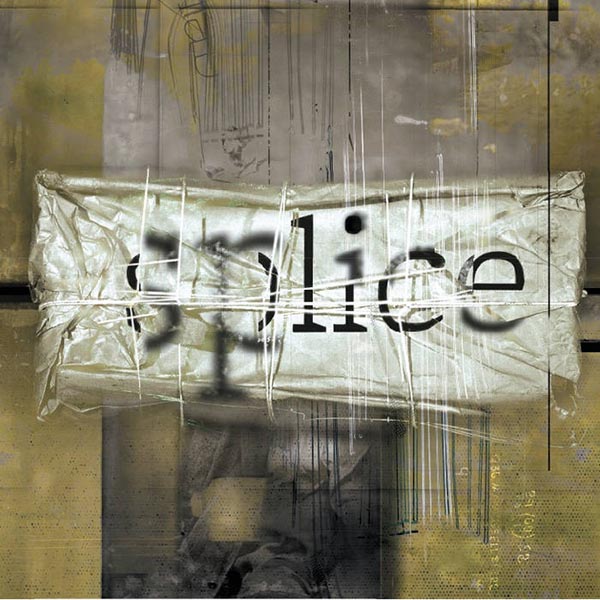
by Ian Mann
September 28, 2011
/ ALBUM
A record that sits outside the mainstream but there is still much here to please the adventurous listener.
Splice
“Lab”
(Loop Records LOOP 1013)
Splice is an electro-improvising quartet led by Pierre Alexandre Tremblay, the head of the Composition and Improvisation course at the University of Huddersfield. Tremblay also works regularly with members of the North London based Loop Collective and Splice finds him playing bass guitar and electronics alongside Alex Bonney (trumpet & electronics), Robin Fincker (tenor sax & clarinet) and Loop mainstay Dave Smith (drums).
As both the group name and album title suggest this is a band that positively encourages experimentation as the sounds of conventional instruments are juxtaposed with electronics and other elements of sound manipulation. All four members of the band contribute to the writing process with half of the album’s ten tracks being credited to the whole group, a result, I suspect, of them having developed from spontaneous improvisations. Indeed it’s a group piece that opens the album.
“Caffeinated Drinks” begins in free improv territory, all shuffling drums, vocalised trumpet sounds and the flutter of saxophone pads plus a smattering of electronica. The latter gives the piece an almost ambient feel from which a drum groove eventually emerges allied to a deep dubby drone and topped off by alternatively long and short horn phrases. It maps out the territory that the band wish to explore but makes little concession to the uncommitted and as such isn’t perhaps the ideal opening track.
Tremblay’s “Cortege” is more arresting, a skewed funeral march that with its blend of horns, electronica and dramatic drumming sounds similar to something that Polar Bear might have attempted. Indeed the numerous fans of Seb Rochford’s group should plenty to intrigue and delight in Splice’s music.
Alex Bonney’s “The Wanderer” is more lyrical with a mellifluous mix of muted trumpet and clarinet contrasting well with the vaguely unsettling bass and drum grooves conjured by Tremblay and Smith.
Fincker’s composition “The Mess” originally appeared on the eponymous début album by the trio Blink (Fincker with pianist Alcyona Mick and drummer Paul Clarvis), also released on the Loop label and reviewed elsewhere on this site. Here it’s a showcase for the fiery dialogue between Fincker’s tenor and Smith’s drums with Tremblay’s bass providing the necessary comment and punctuation.
After a succession of compositions the group accredited “Debris” marks a return to freely improvised territory and also ups the electronica quotient. Tremblay and Bonney’s electronics evoke the sound of deep space and Smith’s sparse but effective percussion adds a drugged, dubby feel.
Smith’s own “Matter” seems to blur the lines between composition and improvisation. The piece blends long sax and trumpet lines above the rolling thunder of Smith’s drums and the rumble of Tremblay’s electronics, slowly building in intensity and climaxing with a Bonney trumpet solo before subsiding.
“Interlude” is a brief but tempestuous improvised snippet led by Smith’s drums that acts as the curtain raiser for the seriously trippy “Sillon Ferme”, the most obviously ambient piece on the record. Paced by Tremblay’s treated electric bass the piece is full of glitches and other electronica. It’s actually highly effective; simultaneously chilled out and spooky.
“Ballade Fortuite” is a feature for Bonney’s superlative trumpet playing, an improvisation that draws on the Nordic masters Nil Petters Molvaer and Arve Henriksen plus the ghost of Miles Davis.
Tremblay and Smith provide suitably sympathetic accompaniment and Fincker eventually joins forces with Bonney. The whole thing sounds remarkably cogent and through composed and is highly effective.
The album close with Fincker’s “Luna Verde”, another piece that has seen the light of day before, in this instance the latest Outhouse album “Straw, Sticks and Bricks” (see review elsewhere on this site). This version is very different with Tremblay and Bonney’s electronics supplanting Hilmar Jensson’s “space station guitar” on the original but the other worldly feel of the piece remains largely intact. Ironically this track sounds more “improvised” than its immediate predecessor with a dynamic peak being reached around three quarters of the way through with Bonney’s impassioned trumpet solo backed by Smith’s volcanic drumming.
Splice define themselves thus; “Splice’s raison d’?tre is to mesh together influences of contemporary jazz, free improv, loud and soft noise, punk grit, ambient music, and more… with seamless blends or blunt juxtapositions.”
On the whole I’d say that this album achieves these aims very well. It’s a record that sits outside the mainstream but despite the occasional, almost inevitable, longueurs there is still much here to please the adventurous listener. Splice are due to play the Harmonic Festival in Birmingham this Friday (30th September 2011) and it will be interesting to witness them performing this or similar material in a live situation.
blog comments powered by Disqus